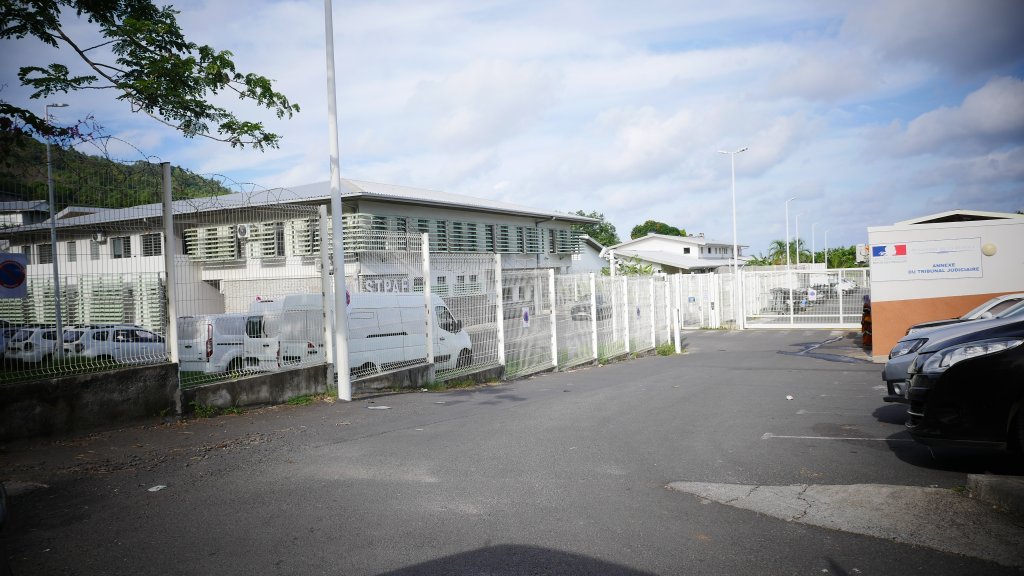The French Senate voted a bill on May 12 to remove the associations currently providing legal advice to foreigners in administrative detention centers (CRA) and replace them with a government body affiliated with the Ministry of the Interior.
French senators adopted a bill with 227 votes against 113 on Monday (May 13) to remove associations providing legal advice to foreigners in administrative detention centers (CRA).
If adopted by the National Assembly, the law will replace the associations with agents of the French Office for Immigration and Integration (OFII), a public body under the supervision of the Ministry of the Interior. Five associations, including Cimade, France Terre d'Asile, and Solidarité Mayotte, are currently present in France's 25 administrative detention centers. They provide advice to nearly 40,000 undocumented immigrants every year.
Read AlsoInside a detention center for rejected asylum seekers
Yet according to Interior Minister Bruno Retailleau, these associations "go beyond their mandate and turn it against the State by hindering its actions out of pure activism."
"The circumstances in which they exercise their current role raise questions regarding the neutrality of the support they provide," said a Les Républicains (LR) senator Marie-Carole Ciuntu from Val-de-Marne, in the report preceding the law.
During the bill's examination on Monday, an MP from the Communist Party, Ian Brossat, slammed a text that "undermines the fundamental principles of the rule of law."
"The objective is not to make the law clearer, but to make it inaccessible," he declared.
'The only independent source' on the detention centers
The associations concerned by the bill have expressed their opposition. "What is being proposed will not guarantee individuals' right to appeal. The associations currently operating in the CRAs play an important role. They provide information on rights and help individuals exercise their appeal when they arrive in the center and during their detention," said Claire Bloch, from the detention project of Cimade.
Read AlsoFrance: Migrants facing difficulties created by new digital registration system
Transferring the work of associations to the OFII raises certain questions. "There are emergency appeals and procedures during detention that require responses within 24/48 hours. I doubt this new system is compatible with the reality on the ground," said Bloch.

The senatorial majority, a right-centrist coalition, considers that the current system is inefficient. The "multiplication of appeals by certain associations, which contribute to saturating courts," said David Margueritte, from the LR party.
Bloch dismissed his criticism: "France is one of the countries that issues the most OQTFs [Obligation to Leave French Territory, editor's note], and there is a very high level of appeals to administrative detention. The increase in appeals is the factual response to the increase in these decisions." Slightly over 128,000 OQTFs were issued last year, according to a report.
"We see that 44 percent of people placed in detention centers have still been released by the judge, so we realize that this litigation is useful," said Mathilde Buffière, head of detention for Groupe SOS.
Read AlsoFrench prime minister's 'migratory submersion' claim is unfounded, say experts
Buffière is particularly concerned about the disappearance of "the only independent source" on the CRAs, with the departure of the associations. "Depriving ourselves of this presence is quite dangerous for civil society's right to scrutinize the CRAs," she added. The associations publish an annual national report revealing the occupancy figures and living conditions in administrative detention centers in France. "We are also there daily to observe the conditions of confinement, the sometimes-illegal practices, to contact the Defender of Rights or the "Contrôleur général des lieux de privation de liberté (CGLPL)”, said Bloch.
"We can also see that in administrative detention facilities without an associative presence, we have no information on what is happening there. The Ministry does not communicate on the number of people detained, the length of their detention, etc. This confirms the necessity of the presence of associative independent actors in the CRAs."
'Accelerated procedure'
Didier Leschi, the director of the OFII, for his part, guarantees that his services will carry out all the missions currently performed by associations. "The date of implementation is January 1, 2026, so by then, I imagine that the resources allocated to associations will be attributed to the OFII. We will make ourselves available to implement it," he told InfoMigrants, while dismissing criticism of his institution's lack of independence. "Public officials have a duty of neutrality."
Read AlsoFrance: What is the 'illegal residence offense' that Bruno Retailleau wants to reinstate?
This bill is now being submitted to the National Assembly under an "accelerated review procedure" initiated by the government. It is part of a trio of initiatives put forward in recent weeks by LR senators on immigration. One of these aims is to extend the maximum period of detention in CRAs from 90 to 210 days for foreigners convicted of a crime or offense punishable by at least five years' imprisonment. The other aim is to make certain social benefits depend on a minimum residence period in France of two years.
